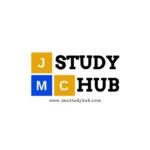Read the following passage and answer questions
The argument that news and other genres such as documentaries and current affairs straightforwardly transmit an obviously biased view of the world has been rejected in most quarters of media studies Nevertheless, while majority acknowledge that television has no overt, direct and unambiguous effects, research has focused on the idea that television can ‘set the agenda’ In other words, just as the agenda of meetings is set with more important items placed prominently on the agenda, television programmes can help define the boundaries of what audiences talk about and think.
By the same token, other texts and meanings, for instance, radical political views or more explicit sexual imagery, may be kept off the agenda It is argued that television is especially vulnerable to those wishing to set the agenda because audiences, given the predetermined quality of the text and narrative, have less opportunity to structure their consumption in the way that newspaper readers can. This implies that agenda setting is always covert or taken for granted Certainly research on television news has backed this up but broadcasters, as with the early BBC, may be open in their intent to structure the agenda in ‘our’ interests.
The concept of agenda – setting can be applied to any genre, including, for example, the ability of MTV and other music video networks to set a pop music agenda However, it is in the field of television news that it has gained particular currency News programmes, it is asserted, are able to set the agenda in choice and ordering of items, by the privileging of one voice before another, in more or less combative interviewing techniques, in allocation of ‘The last word’, and in any number of other techniques embedded in the everyday practices of the profession Some journalists reject this position claiming that they simply select what is most significant on any given day or even that they have ‘an eye for a story’.
Q1. Some media studies reject:
(A) Effects of television
(B) Agenda – setting
(C) Biased view of TV news
(D) Journalism as profession
Correct Ans: (C)
Explanation: The passage clearly says that most media studies have rejected the argument that news and genres like documentaries transmit an “obviously biased view” of the world. Therefore, this claim doesn’t hold much weight in current academic thinking. Instead, researchers now focus more on how TV sets the agenda. So, option (C) is correct.
Q2. TV programmes can define agenda – setting like:
(A) Agenda of meetings
(B) Audience programmes
(C) TV genres
(D) Current affairs
Correct Ans: (A)
Explanation: The passage directly compares agenda-setting on television to the setting of agendas in meetings. It explains that TV places more important issues prominently, just like meeting agendas do. This method influences what audiences consider important. Hence, the comparison supports option (A).
Q3. Agenda – setting is always:
(A) Overt
(B) Direct
(C) Ambiguous
(D) Covert
Correct Ans: (D)
Explanation: According to the passage, agenda-setting is usually hidden or “taken for granted.” Although it may not be obvious, it still influences what the audience talks about or ignores. This subtle influence is what makes it covert rather than direct or overt. So, option (D) fits best.
Q4. Agenda in choice, according to the passage includes:
(A) Audience choice
(B) BBC News
(C) Combative interviews
(D) Current affairs
Correct Ans: (A)
Explanation: The passage gives examples of how TV news sets the agenda, including combative interviews and the order of stories. These techniques help highlight certain voices while downplaying others. Therefore, this strategy is one part of how agenda-setting happens. That confirms option (C) as correct.
Q5. On what criteria do journalists select news stories?
(A) Music content
(B) Political views
(C) Significance
(D) Research
Correct Ans: (C)
Explanation: The passage notes that some journalists argue they choose news stories based on what is most significant that day. They claim to follow newsworthiness, not any hidden agenda. This shows they value importance and public interest when selecting stories, making option (C) the right answer.














